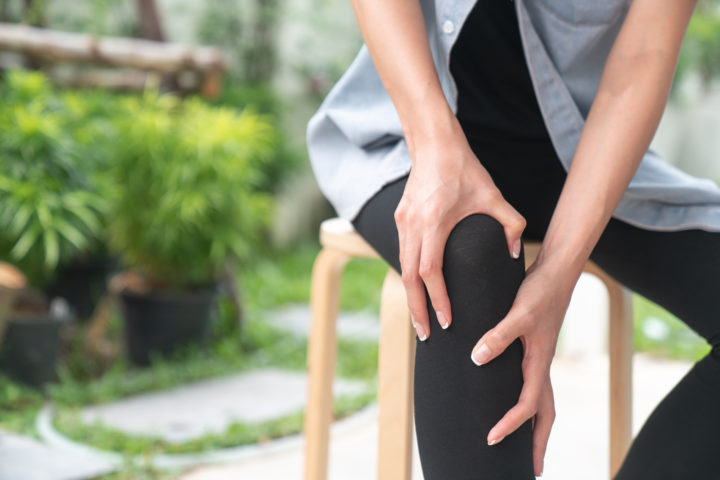The pain they cause can last a lifetime.
Because I watched a lot of daytime TV during certain parts of my life, I remember, and sometimes still see, commercials for law firms offering to defend folks who had been injured via transvaginal mesh implants. I was in the dark as to what they were, terse and directed to as they were at those who knew what transvaginal mesh was, and who were suffering because of it.
Transvaginal mesh implants were a treatment for pelvic organ prolapse, which happens when the pelvic organs can’t be supported by tissue that secures the bladder, rectum and uterus and these organs drop so that they’re against the wall of the vagina. This is caused by childbirth, and also by the strength of the pelvic wall muscles eroding with age.
300,000 surgeries are performed in the United States each year in order to correct pelvic organ prolapse, and 11 – 19% of women who experience issues involving the pelvic floor will need surgery. (Transvaginal mesh has also been used to treat urinary incontinence.) The mesh, made from a porous synthetic material called polypropylene, was cleared for use for these purposes in 2001, is implanted in the vagina to prevent the prolapse (it had been used in abdominal repair surgeries since the 1970s). According to Morgan Statt of ConsumerSafety.org, the mesh was approved by the FDA without clinical data, and 1 in 10 women have experienced complications as a result of the mesh implant.
In 2008, the FDA informed physicians and patients of the risks associated with transvaginal mesh, such as infection, pain during sex, UTIs, the inability to walk, nerve damage, adhesions when tissues grow into the mesh, and more, including mental health issues resulting from the stress of coping with ongoing medical problems. Today, the mesh has mostly been pulled from production, and that which remains has been labeled as a high-risk product.
Lindsey Andrews is a lawyer who works with women who have been injured by transvaginal mesh implants.
“The injuries that women are suffering from this mesh implant are severe and debilitating and could have been avoided had people had the proper information,” she said.
Because the mesh is, well, mesh, the edges can cut through the skin and cause infections, as well as potentially puncture the bladder, bowel, and uterus. Andrews describes the material which makes up the mesh as a “breeding ground” for bacteria. The injuries caused by transvaginal mesh won’t necessarily show up right after surgery; you can be impacted years after the procedure.
“Even after multiple surgeries, doctors are sometimes unable to remove all of the mesh which by that point has become infused to the surrounding tissue, causing life-long problems,” reported Andrews.
“These issues can be severe and lead to severe loss of quality of life,” says Michelle Llamas, a senior content writer at Drugwatch who has been writing about transvaginal mesh implants and their effects for many years. “I have spoken to many women that have lost marriages, relationships, careers and their ability to walk without a wheelchair or cane.”
The impact of transvaginal mesh implants has been met with a certain degree of tone-deafness from some medical providers, including some French gynecologists, and marketing professionals, who, in emails which surfaced in August 2017, suggested women have anal sex in order to avoid the pain that resulted from vaginal sex due to the implant. (Because in addition to destroying a person’s quality of life and denying her pain, let’s dictate how she should have sex.)
In September of this year, Buzzfeed Australia published a piece examining the impact of transvaginal mesh implants on women in the country, after an inquiry looking for those who had been impacted by it revealed hundreds of women in terrible and enduring pain.
“I feel I no longer can have a sexual relationship, which has left me feeling depressed and alone,” said one woman, now 60, who was not made aware of the risks of transvaginal mesh implants when she had the surgery. Throughout the piece, women reported being unaware that over 100,00 women in the US had filed lawsuits due to injuries from the implant. “My life turned to hell [and I suffered] daily pain and discomfort,” another wrote. “Don’t use this product, ever.”
In order to maintain the overall health of one’s pelvic floor, doctors suggest pelvic floor therapy, as well as Kegel exercises, to strengthen muscles. There are options for treating pelvic organ prolapse without transvaginal mesh. You can learn from your doctor how to insert a pessary, a small plastic or silicone device that can support sagging organs, thereby eliminating the need for surgery altogether. Your own tissue, as well as organic mesh (made from animals), can be used in lieu of the polypropylene that has such devastating and interminable effects.




comments